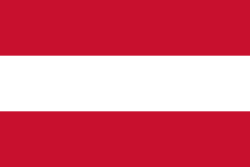Corruption in Austria describes the prevention and occurrence of corruption in Austria. Austria has a well-developed institutional and legal system, and most corruption cases under investigation by a parliamentary committee end with judicial trials and effective judgments. However, there are several significant Austrian corruption cases which have taken place during the past decade involving land and regional officials, high-level public officials, the central government and, in one instance, the former Chancellor. [1]
Contents
On Transparency International's 2024 Corruption Perceptions Index, Austria scored 67 on a scale from 0 ("highly corrupt") to 100 ("very clean"), a four-point drop from its 2023 score and a ten-point drop from its highest score of 77 in 2019. When ranked by score, Austria ranked 25th among the 180 countries in the Index, where the country ranked first is perceived to have the most honest public sector. [2] For comparison with regional scores, the best score among Western European and European Union countries [Note 1] was 90, the average score was 64 and the worst score was 41. [3] For comparison with worldwide scores, the best score was 90 (ranked 1), the average score was 43, and the worst score was 8 (ranked 180). [4]
In most cases, corrupt practices were related to conflicts of interest, abuse of office, money laundering and influence peddling. The corruption scandals have put into doubt the ethical standards of the political elite. [1] This doubt is reflected in the findings of Eurobarometer 2012, where two-thirds of respondents perceive national politicians to be corrupt and also the most corrupt institution in Austria. [5]
